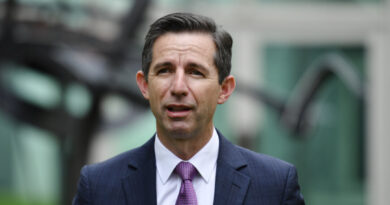Water Companies Increase Compensation for Service Failures
Water companies currently have no legal obligation to provide compensation to customers in case of supply interruptions.
The government has announced that water companies will now have to pay significantly higher compensation to customers and businesses affected by service failures.
Compensation will be mandatory for water companies in the event of issues such as supply outages, sewer flooding, or low water pressure.
The Department for Environment, Food, and Rural Affairs (DEFRA) stated that a reform of payment rates, which have remained unchanged since 2000, was long overdue.
Under the revised regulations, cases like low water pressure could lead to payments of up to £250, compared to the current £25. Companies may also be required to pay over £2,000 for internal flooding from sewers, an increase from the current £1,000 limit.
This decision comes after various incidents of service disruption across the country, including a supply interruption in South Staffordshire and water quality issues in Brixham, Devon.
Environment, Food, and Rural Affairs Secretary Steve Reed expressed that water companies have frequently disappointed customers.
“We are clear that the public deserve better compensation when things go wrong, so I’m taking action to make sure that happens. This is another step forward in our plans to reforms the water sector so it serves customers and the environment better,” he said.
Guaranteed Standards Scheme
There is currently no legal requirement for water companies to offer compensation to customers in case of supply interruptions under the Guaranteed Standards Scheme (GSS).
A public consultation revealed strong public support for enhanced protection from service disruptions for customers in England.
As a result of the consultation, DEFRA will introduce secondary legislation to update the GSS.
The revised regulations will broaden the scope of circumstances that trigger compensation, including Boil Notices issued by water companies when the water supply may be contaminated and unsafe to consume.
The list of compensable incidents will also include failures by firms to perform promised meter readings or installations.
Consumer Council for Water CEO Mike Keil stated that the GSS is inadequate and in need of long-overdue improvements.
Poor Performance
Last month, water companies in England and Wales were instructed to return over £150 million to customers due to their poor performance in pollution, leaks, and customer satisfaction.
Regulator Ofwat stated that the sum will be deducted from bills for households and businesses between 2025 and 2026, with the final rebate to be determined in December.
Ofwat highlighted that the sector had underperformed in reducing internal sewer flooding and had the lowest level of customer satisfaction since 2020–2021.
The industry has faced criticism in recent years for its subpar environmental performance and waste spills.
Thames Water
Thames Water, the largest water company in England serving approximately 16 million customers, is burdened with nearly £16 billion in debt and requires £3.3 billion over the next five years to remain operational.
During a High Court hearing, creditors presented conflicting views on how to ensure Thames Water’s survival.
Thames Water Utilities Holding Ltd informed the court that creditors representing over 75 percent of its Class A debt, valued at around £11.5 billion, had approved a restructuring plan.
This plan, known as the “A plan,” involves a £3 billion loan with a 9.75 percent interest rate.
Another group of creditors holding approximately £750 million in riskier Class B bonds advocated for an alternative “B plan” with a similar £3 billion loan but under different terms.
The disagreement arises as Thames Water awaits a crucial decision from Ofwat this week regarding a possible 59 percent increase in customer bills over the next five years.
PA Media contributed to this report.





